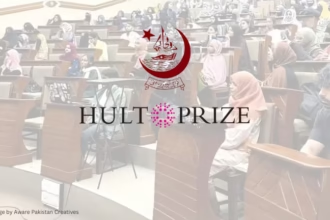In a developing country like Pakistan, we often see new buzzwords in a political context. Many of these buzzwords are used in the context of development and empowerment, but as a post-colonial state, much of this terminology is Eurocentric and western. The global west has created such a huge hegemony that we tend to implement the exact same idea of development in our country as they do in the west, without considering the needs of our country. This results in serious negative consequences for us, as we are unable to achieve the desired results.
The main problem with subscribing to the western idea of “empowerment” instead of creating our own is that many social, cultural, and other factors are ignored in our policies. We have numerous policies and laws in our country that aim to promote social development and empowerment, but these are often directly adopted under the influence of the global west, either due to their power or due to the consent they have manufactured in the global south and rest of the world. As a result, buzzwords like “empowerment” and “progressive” have western notions attached to them in our society, and we often see negative reactions from the masses when these words are used in any policy, legislation, law, initiative, or program.
Under the government of Pervez Musharraf in 2002, the National Policy for Development and Empowerment of Women was enacted in Pakistan. This policy recognized violence against women as a serious issue in our patriarchal society and aimed to eradicate all forms of violence against women through certain strategies. It also aimed to empower Pakistani women by providing a safe environment for them to learn and grow without facing discrimination. However, after 20 years of implementing this policy and several other policies, initiatives, and legislations for the same cause, we have not seen the eradication of violence or the provision of a safe environment for women in Pakistan.
Women are still unsafe on the streets and in their homes, and the cases of harassment, rape, and assault are higher than ever. We recently adopted the Protection against Harassment of Women at the Workplace Bill, but we saw a lot of negative reactions to it within our country. One of the main reasons for this is the language we use, which causes people to suddenly attach western notions to it.
The concept of “empowerment” is perceived to be western in Pakistan and causes backlash in feminist movements
Even with the women’s rights movements in Pakistan, it is important to notice how people interpret these movements. Often we see the idea of a “foreign funded agenda” and “destroying our culture” being attached to movements like Aurat Azadi March. No matter how much they try to justify their agenda, there is always a backlash from society. This is because in our country, the whole idea of “empowerment” is perceived to be western. In a society that is deeply rooted in patriarchal norms, it is very difficult to bring about social change and empower women.
There is definitely a need for social development, and this can only be achieved if we involve the women of our country in the process of creating policies for them. It is essential to ask them what they want and what “development” and “empowerment” look like to them. Only then will our movements and policies on women’s empowerment truly represent our women. If we continue to simply subscribe to the idea of feminism from the west, it only creates more room for backlash. White feminism originated with privileged white women, so their idea of empowerment is very different from the oppression faced by women in our country, who have many social factors attached to their oppression.
There is a need to set our priorities straight. We need to realize whether the women in our country need empowerment or safety first. Because empowerment is something that comes under the domain of social and development policy. While there is a need for an effective interventionist policy by the state to provide safety to the women of Pakistan, only when women in this country feel safe can they be empowered. So instead of just subscribing to the whole idea of “empowerment” being used in the global west, we need to create our own idea of what development in this sector in our country should look like.
The views, information, and opinions expressed by the author (blogger) do not necessarily reflect those of Aware Pakistan and its team. The primary purpose of the blogs and articles is to empower civic voices and offer independent bloggers and aspiring writers a professional platform on which to speak in their entirety and publish their words without any restrictions.








